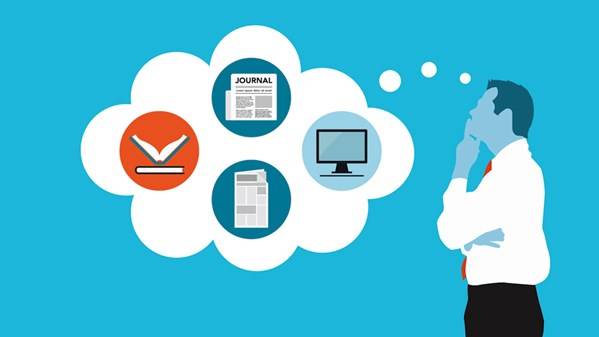
ISLAMABAD: Speakers at a conference on Media and Information Literacy for Prevention of Violent Extremism held in Tuesday stressed the need to equip Pakistani citizens with media and information literacy skills in order to eliminate violent extremism and hate speech from the society.
The two-day multi-stakeholder dialogue was organised by the UNESCO Information for All Programme (IFAP) in collaboration with the UNESCO IFAP National Committee and civil society partner Media Matters for Democracy.
Titled "Ba-shaoor Shehri, Pur Amn Pakistan", the conference was attended by government officials, civil society representatives, members of the academia and media professionals from across the country.
Media and information literacy is a composite concept that includes skills that allow citizens to articulate their information needs, seek access to credible information sources, critically evaluate media messages and produce ethical news and information themselves.
Minister for Federal Education, Professional Training and Heritage Shafqat Mahmood was the chief guest at the conference where he delivered the keynote address.
Mahmood said the public education system must prepare Pakistani youth and children for effective and ethical engagement with digital media and new information technologies.
He said that media and information literacy can develop critical thinking skills and respect for cultural diversity among young Pakistanis. The minister also said that the federal government was working on education reforms and a unified curriculum for the country that would meet international standards.
Earlier, UNESCO’s Representative for Pakistan Vibeke Jensen welcomed the guests at the event. Jensen informed the participants about UNESCO's vision for using media and information literacy as a tool to promote peace and counter online disinformation.
She stressed the need for developing media and information literacy competencies, especially to equip young people with the skills to critically analyse the information disseminated by all types of media.
Professor Dr Akram Shaikh, the Chair of the UNESCO IFAP National Committee, said the conference intends to be a stepping stone for developing policies and launching initiatives related to media and information literacy in Pakistan.
During the opening plenary, speakers suggested that development approaches to counter extremism are necessary alongside security-based interventions. The speakers suggested the effective use of mainstream and digital media to spread a counter-narrative of peace and tolerance.
In another session, experts discussed issues related to youth radicalisation in the country and recommended that youth empowerment programmes focusing on global citizenship and critical thinking are necessary to reduce vulnerability to online radicalisation.
EU Delegation in Pakistan Deputy Head of Mission Anne Marchal delivered the concluding remarks and shared information about EU initiatives on media and information literacy and prevention of violent extremism.
The two-day multi-stakeholder dialogue was organised by the UNESCO Information for All Programme (IFAP) in collaboration with the UNESCO IFAP National Committee and civil society partner Media Matters for Democracy.
Titled "Ba-shaoor Shehri, Pur Amn Pakistan", the conference was attended by government officials, civil society representatives, members of the academia and media professionals from across the country.
Media and information literacy is a composite concept that includes skills that allow citizens to articulate their information needs, seek access to credible information sources, critically evaluate media messages and produce ethical news and information themselves.
Minister for Federal Education, Professional Training and Heritage Shafqat Mahmood was the chief guest at the conference where he delivered the keynote address.
Mahmood said the public education system must prepare Pakistani youth and children for effective and ethical engagement with digital media and new information technologies.
He said that media and information literacy can develop critical thinking skills and respect for cultural diversity among young Pakistanis. The minister also said that the federal government was working on education reforms and a unified curriculum for the country that would meet international standards.
Earlier, UNESCO’s Representative for Pakistan Vibeke Jensen welcomed the guests at the event. Jensen informed the participants about UNESCO's vision for using media and information literacy as a tool to promote peace and counter online disinformation.
She stressed the need for developing media and information literacy competencies, especially to equip young people with the skills to critically analyse the information disseminated by all types of media.
Professor Dr Akram Shaikh, the Chair of the UNESCO IFAP National Committee, said the conference intends to be a stepping stone for developing policies and launching initiatives related to media and information literacy in Pakistan.
During the opening plenary, speakers suggested that development approaches to counter extremism are necessary alongside security-based interventions. The speakers suggested the effective use of mainstream and digital media to spread a counter-narrative of peace and tolerance.
In another session, experts discussed issues related to youth radicalisation in the country and recommended that youth empowerment programmes focusing on global citizenship and critical thinking are necessary to reduce vulnerability to online radicalisation.
EU Delegation in Pakistan Deputy Head of Mission Anne Marchal delivered the concluding remarks and shared information about EU initiatives on media and information literacy and prevention of violent extremism.
